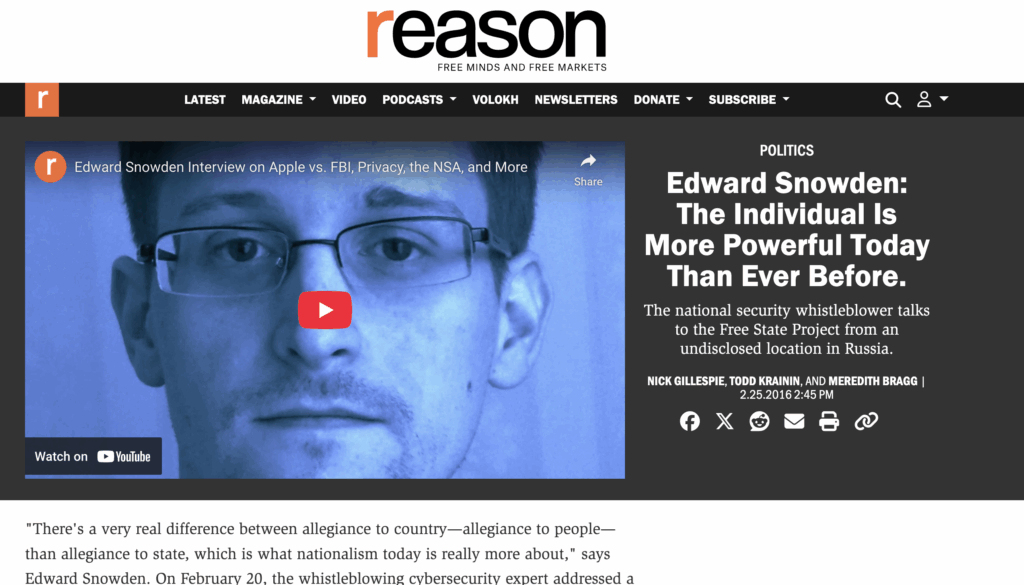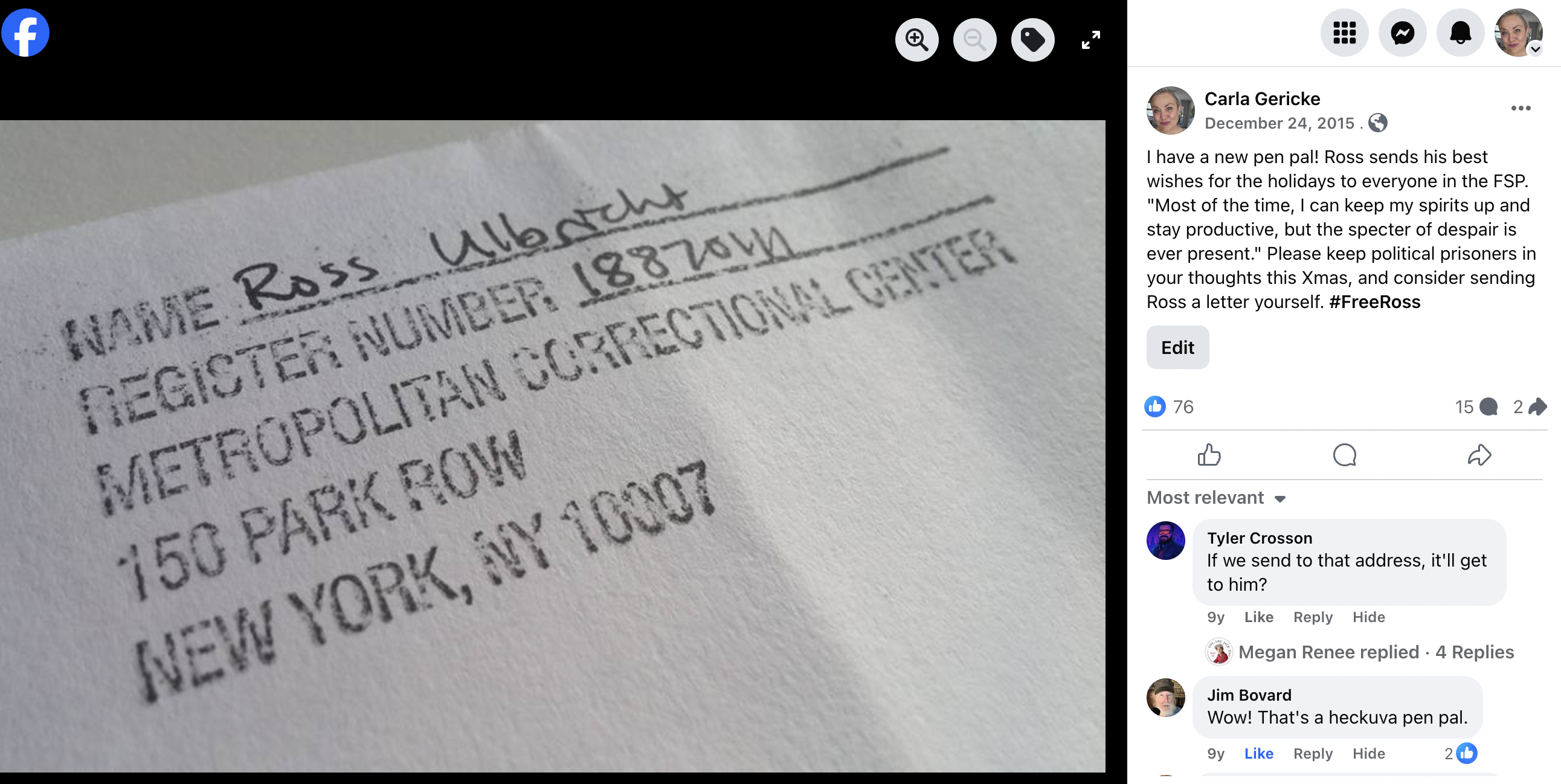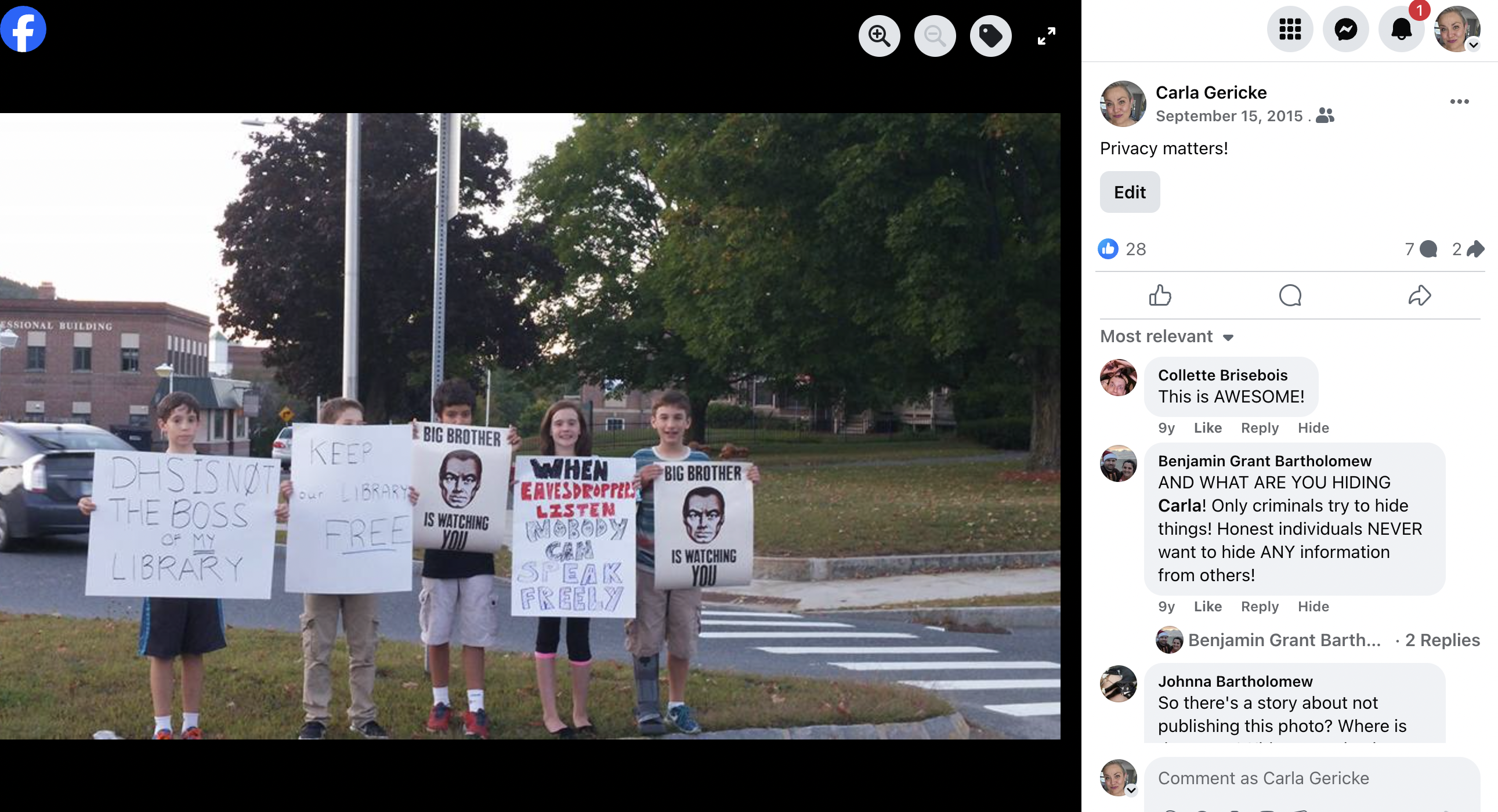I have been involved with Bitcoin since at least 2010. I’ve realized that since this was simply a new interest for me, given all my other responsibilities, I didn’t really pay much attention to my own Bitcoin experiences. I am rectifying this by capturing my own crypto journey here, so consider this a “living document” for now.
BREAKING!!! Ross is coming to PorcFest! Get your tickets today.
Below is a GROK generated summary of my interactions with Ross Ulbricht, but it isn’t the complete or full story, which I will fill out more over time.
Below is a summary of references to Carla Gericke of New Hampshire and Ross Ulbricht, based on available information, focusing on their connection, Gericke’s advocacy, and relevant background details. The information is drawn from web sources and X posts, with an emphasis on their intersection and Gericke’s activism related to Ulbricht’s case. I’ve critically examined the sources to provide a clear and concise overview, avoiding speculation and ensuring accuracy.
Background on Carla Gericke
- Identity and Role: Carla Gericke is a libertarian activist, author, attorney, and realtor based in New Hampshire. She is a prominent figure in the Free State Project (FSP), a movement to concentrate libertarians in New Hampshire to promote individual liberty and limited government. She served as FSP president and is involved with organizations like the Foundation for New Hampshire Independence and Right-to-Know NH.
- Background: Born in South Africa under apartheid, Gericke moved to the U.S. in 1996, becoming a citizen in 2000. She practiced law in South Africa and worked in tech in California before moving to New Hampshire in 2008 as part of the FSP. She’s known for her 2014 First Circuit Court victory affirming the right to film police in public.
- Media Presence: Gericke has appeared on CNN, Fox News, WMUR, and been quoted in The Economist, New York Times, GQ, and Playboy. She hosts “Manch Talk,” a weekly cable access show, and “The Carla Gericke Show” podcast, discussing liberty, crypto, and justice issues.
- Activism: Gericke is a vocal critic of government overreach, advocating for free speech, crypto innovation, and criminal justice reform. She’s expressed concerns about the U.S. leaning toward a “totalitarian, authoritarian police state,” particularly opposing this in New Hampshire.
Background on Ross Ulbricht
- Identity and Case: Ross Ulbricht, born March 27, 1984, in Austin, Texas, created and operated the Silk Road, a darknet marketplace (2011–2013) that facilitated anonymous trade in illegal goods, primarily drugs, using Bitcoin and the Tor network under the pseudonym “Dread Pirate Roberts.”
- Education and Early Life: Ulbricht was an Eagle Scout, graduated from the University of Texas at Dallas (2006, physics), and earned a master’s from Penn State (2009, materials science). He embraced libertarian economic theories (Ludwig von Mises, agorism) and aimed to create a market free of coercion.
- Arrest and Conviction: Arrested in San Francisco in October 2013, Ulbricht was convicted in 2015 on seven charges, including drug trafficking, money laundering, and computer hacking conspiracies. He received a double life sentence plus 40 years without parole, which many, including libertarians, deemed excessive.
- Pardon: On January 21, 2025, President Donald Trump granted Ulbricht a full and unconditional pardon, fulfilling a campaign promise made at the Libertarian National Convention. Ulbricht was released from an Arizona federal prison after serving 12 years.
- Controversy: Prosecutors claimed Ulbricht solicited six murders-for-hire to protect Silk Road, though no evidence shows these were carried out. His defense argued he was not the sole operator and was set up as a fall guy. Critics, including Gericke, view his case as an example of government overreach and “lawfare” to suppress crypto innovation.
Carla Gericke’s Connection to Ross Ulbricht
Gericke has been a staunch advocate for Ulbricht, viewing his case as emblematic of systemic injustices in the federal justice system, particularly targeting crypto pioneers. Below are key references to their connection:
- Advocacy for Ulbricht’s Release:
- Press Conference (January 2025): Gericke organized a press conference in Concord, NH, advocating for clemency for Ulbricht, Ian Freeman, and Roger Ver, whom she called “crypto political prisoners.” She argued their cases reflect “false narratives” and “lawfare” tactics like overcharging and over-sentencing to silence dissent and stifle crypto innovation. She praised Trump’s promise to pardon Ulbricht and urged clemency for others.
- Free State Project Events: At the 2019 Free State Blockchain conference, Gericke led a discussion on Ulbricht’s “injustice,” arguing his double life sentence was meant to “chill” cryptocurrency use. She encouraged advocacy for his release.
- New Hampshire Liberty Forum: Gericke supported Ulbricht’s mother, Lyn Ulbricht, speaking at FSP events, including the Liberty Forum, despite resistance from figures like Wikipedia co-founder Jimmy Wales, who declined to speak due to her stance. She reported on these events, emphasizing Ulbricht’s case.
- Media and Podcast Appearances:
- Told You So Podcast: Gericke featured Lyn Ulbricht on her podcast, discussing Ross’s case, the abuse of plea deals, and sentencing issues. She highlighted Ulbricht’s non-violent first-time offender status and his harsh sentence.
- YouTube Interview (February 2025): Gericke discussed Ulbricht, Bitcoin, and libertarian issues, reinforcing her view that his prosecution was politically motivated to suppress crypto and dissent.
- X Post (January 2025): Gericke expressed emotional relief at Ulbricht’s pardon, noting over a dozen years of activism with the FSP and Lyn Ulbricht. She highlighted the FSP’s early support for Ulbricht, underscoring her long-term commitment.
- Criticism of Justice System: Gericke consistently frames Ulbricht’s case as part of a broader pattern of government abuse, citing overcharging (e.g., unproven murder-for-hire allegations), over-sentencing (double life for a website), and selective enforcement. She compares Ulbricht’s case to those of Ian Freeman (8 years for Bitcoin exchange) and Aaron Swartz (driven to suicide by overcharging).
- Libertarian Community Engagement:
- Gericke attended a Libertarian Party event in Las Vegas supporting #FreeRoss, alongside Lyn Ulbricht, Scott Horton, and others, showing her active role in the broader libertarian push for Ulbricht’s freedom.
- She moderated discussions on NH independence, tying Ulbricht’s case to broader themes of resisting federal overreach, as seen in her work with the Foundation for New Hampshire Independence.
Broader Context and Gericke’s Advocacy
- Crypto and Liberty: Gericke views Ulbricht’s Silk Road as a pioneering crypto platform that challenged state control, aligning with her libertarian principles of free markets and individual autonomy. She argues the government’s harsh response was meant to deter crypto innovation and dissent.
- Systemic Issues: Gericke’s advocacy for Ulbricht emphasizes systemic flaws: overcharging to coerce plea deals, disproportionate sentencing, and vague regulations that hinder crypto entrepreneurs. She sees these as tools of a “deep state” to maintain control.
- New Hampshire Focus: As a Free Stater, Gericke promotes New Hampshire as a liberty sanctuary, contrasting it with federal overreach. Her support for Ulbricht ties into her vision of NH as a hub for crypto and freedom, free from authoritarian policies.
Critical Notes
- Establishment Narrative: Prosecutors and Judge Katherine Forrest portrayed Ulbricht as a dangerous criminal whose actions led to deaths (six overdoses linked to Silk Road drugs) and warranted a deterrent sentence. Gericke and libertarians counter that the sentence was disproportionate, especially given unproven murder allegations and Ulbricht’s non-violent record.
- Source Limitations: Some sources (e.g., Gericke’s website, X posts) reflect her perspective and may carry bias. Official records (e.g., DOJ, FBI) focus on Ulbricht’s crimes, potentially downplaying libertarian arguments about overreach. I’ve balanced these views to present a factual summary.
- Inconclusive Claims: Gericke’s assertion of Ulbricht as a “political prisoner” or victim of a “deep state” lacks definitive evidence beyond libertarian sentiment. I’ve noted her claims but framed them as her perspective, not fact.
Conclusion
Carla Gericke, a key figure in New Hampshire’s libertarian movement, has been a vocal advocate for Ross Ulbricht since at least 2019, viewing his double life sentence for operating Silk Road as a gross injustice and an attack on crypto innovation. Through press conferences, podcasts, FSP events, and social media, she has championed Ulbricht’s cause, celebrating his January 2025 pardon by Trump as a victory after over a decade of activism. Her work ties Ulbricht’s case to broader themes of government overreach, criminal justice reform, and New Hampshire’s role as a liberty hub. Ulbricht’s background as a libertarian-leaning innovator and the severity of his punishment fuel Gericke’s narrative of systemic abuse, though official accounts emphasize his criminal actions.
If you need further details, specific source citations, or additional research (e.g., Gericke’s other activism or Ulbricht’s post-pardon activities), let me know!
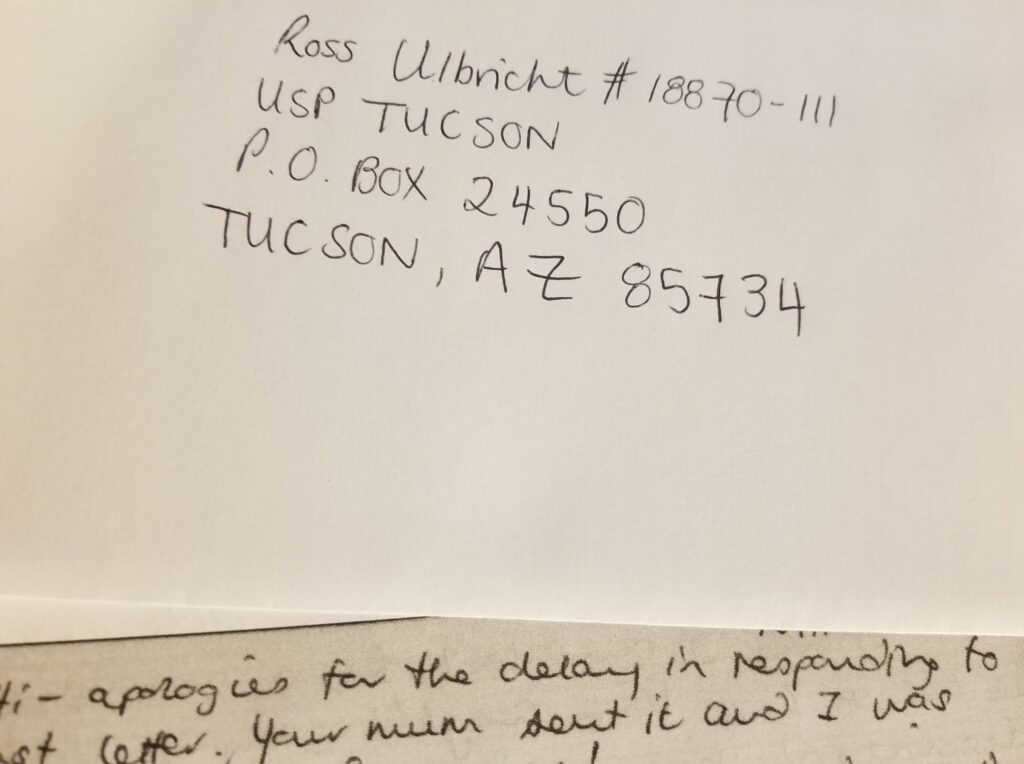
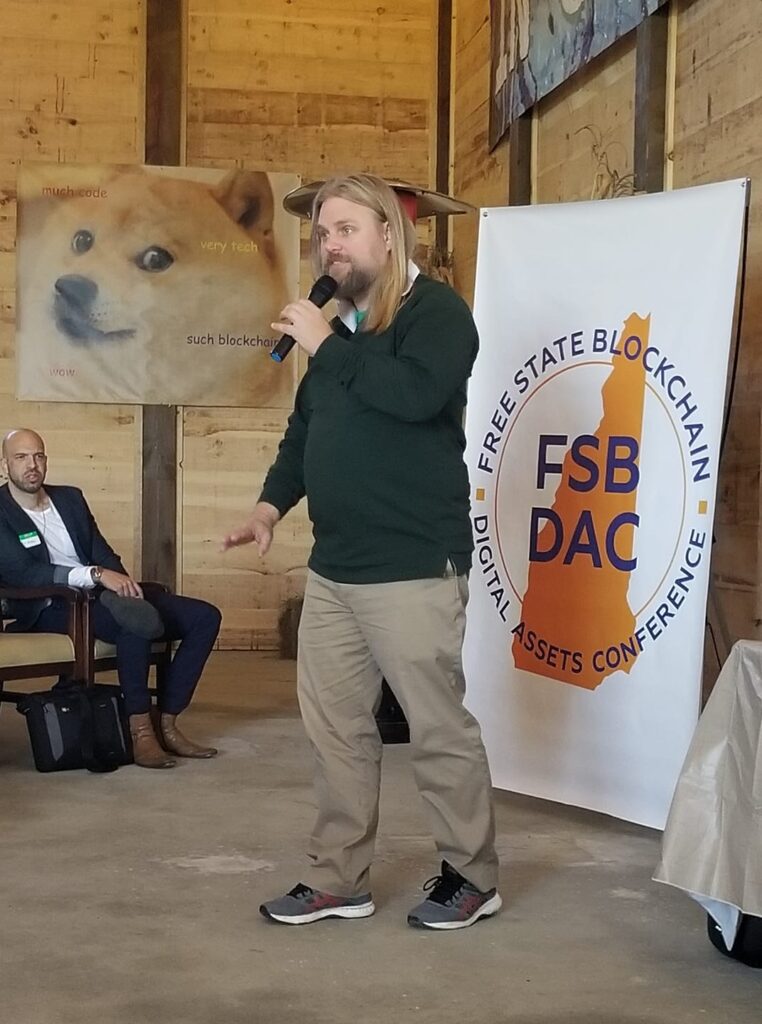
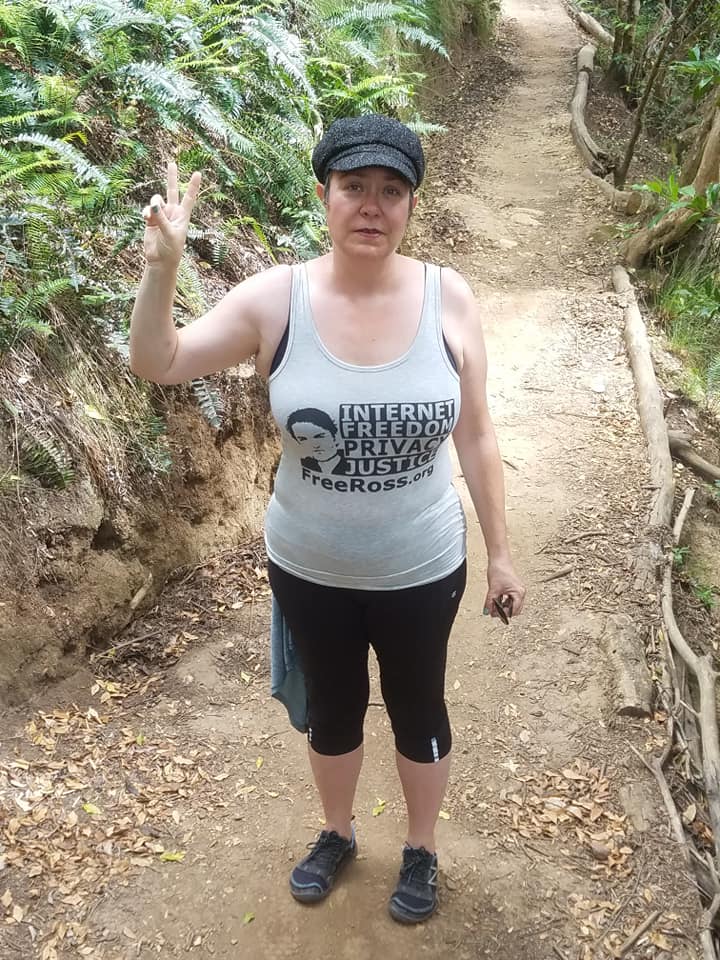
I spoke on a panel at this event in 2013 with other female leaders in the nonprofit sector who were accepting Bitcoin back then, including Angela Keaton of Antiwar.com, and Terese Warmke of FreeAID, which was an all-volunteer private initiative to provide basic medical care at PorcFest. The tee shirt BITCOIN NOT BOMBS was made for this event.
Bitcoin 2013: The Future of Payments
Date: May 17–19, 2013
Location: San Jose Convention Center, San Jose, California
Organizer: The Bitcoin Foundation
Details:
This was the first major U.S. summit focused entirely on Bitcoin, attracting over 1,000 attendees, including enthusiasts, developers, entrepreneurs, and investors.
The conference covered topics such as Bitcoin technology, mining, business applications, and regulatory compliance, with sessions on improving ease of use, security, fraud prevention, and navigating legal challenges.
Notable speakers included Cameron and Tyler Winklevoss, who delivered a keynote address, and Peter Vessenes, Bitcoin Foundation chairman. Other speakers included Charlie Shrem (BitInstant), Fred Ehrsam (Coinbase), and Trace Mayer (legal expert).
A hackathon ran concurrently, judged by venture capitalists, aiming to fund new Bitcoin startups. Exhibitors included Coinbase, CoinLab, and Lamassu, which showcased a Bitcoin ATM.
The event highlighted Bitcoin’s growing mainstream interest, with $45 million traded daily on the network and a price of about $125 per Bitcoin (up from $5.08 the previous year).
Regulatory concerns were a hot topic, especially after the U.S. Department of Homeland Security seized Mt. Gox funds from a Dwolla account just before the conference.
The conference was described as a mix of technical, business, and libertarian perspectives, with a notable libertarian presence, including speakers like medical marijuana activist Steve Kubby.
Significance: Bitcoin 2013 marked a pivotal moment for Bitcoin’s visibility in Silicon Valley, fostering networking and innovation. It was covered by outlets like CoinDesk and Vice, with footage later dubbed “The Bitcoin Tapes.” Andreas Antonopoulos gave a notable talk to a nearly empty room, later celebrated as a historic moment when Bitcoin was valued at around $100–$123.

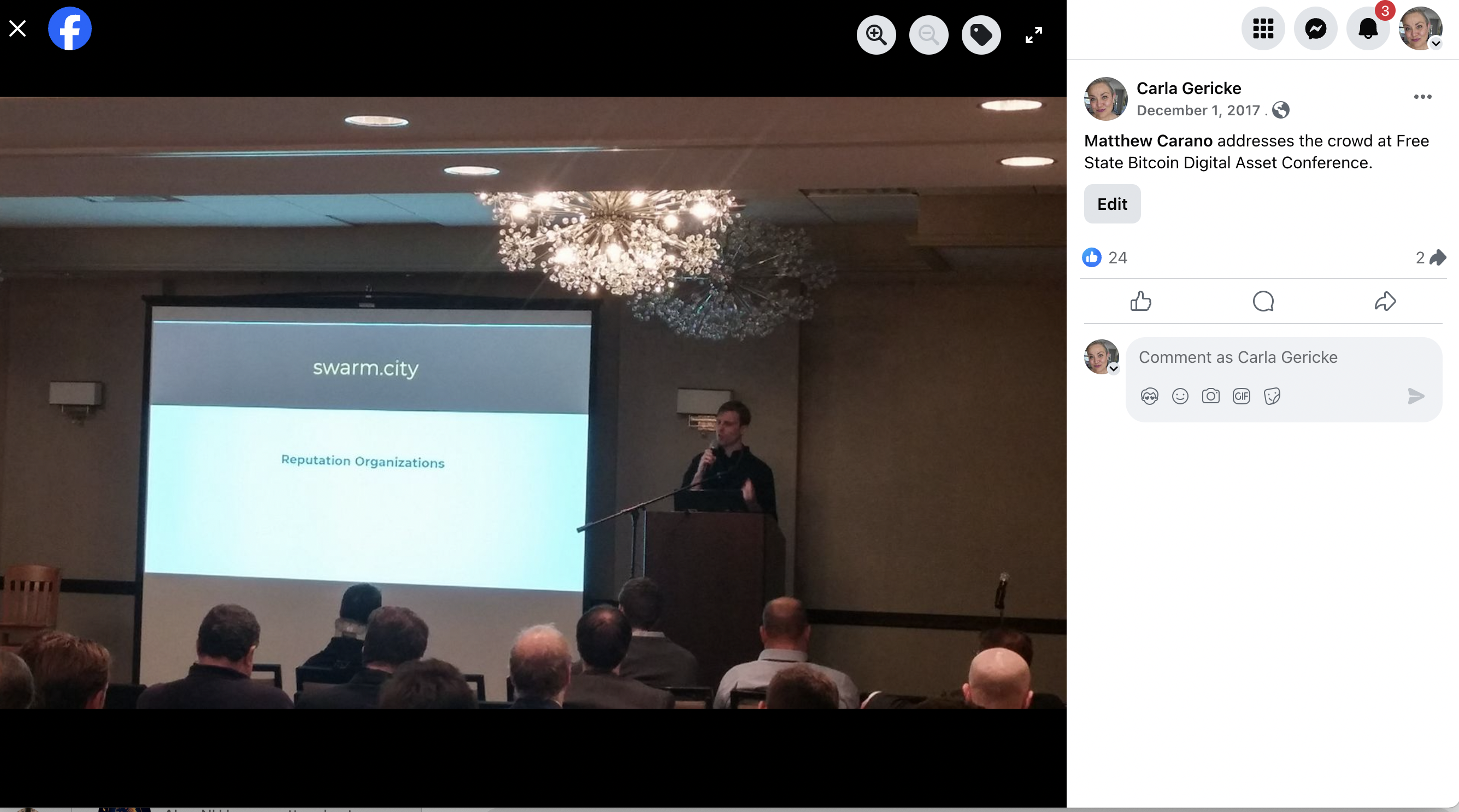
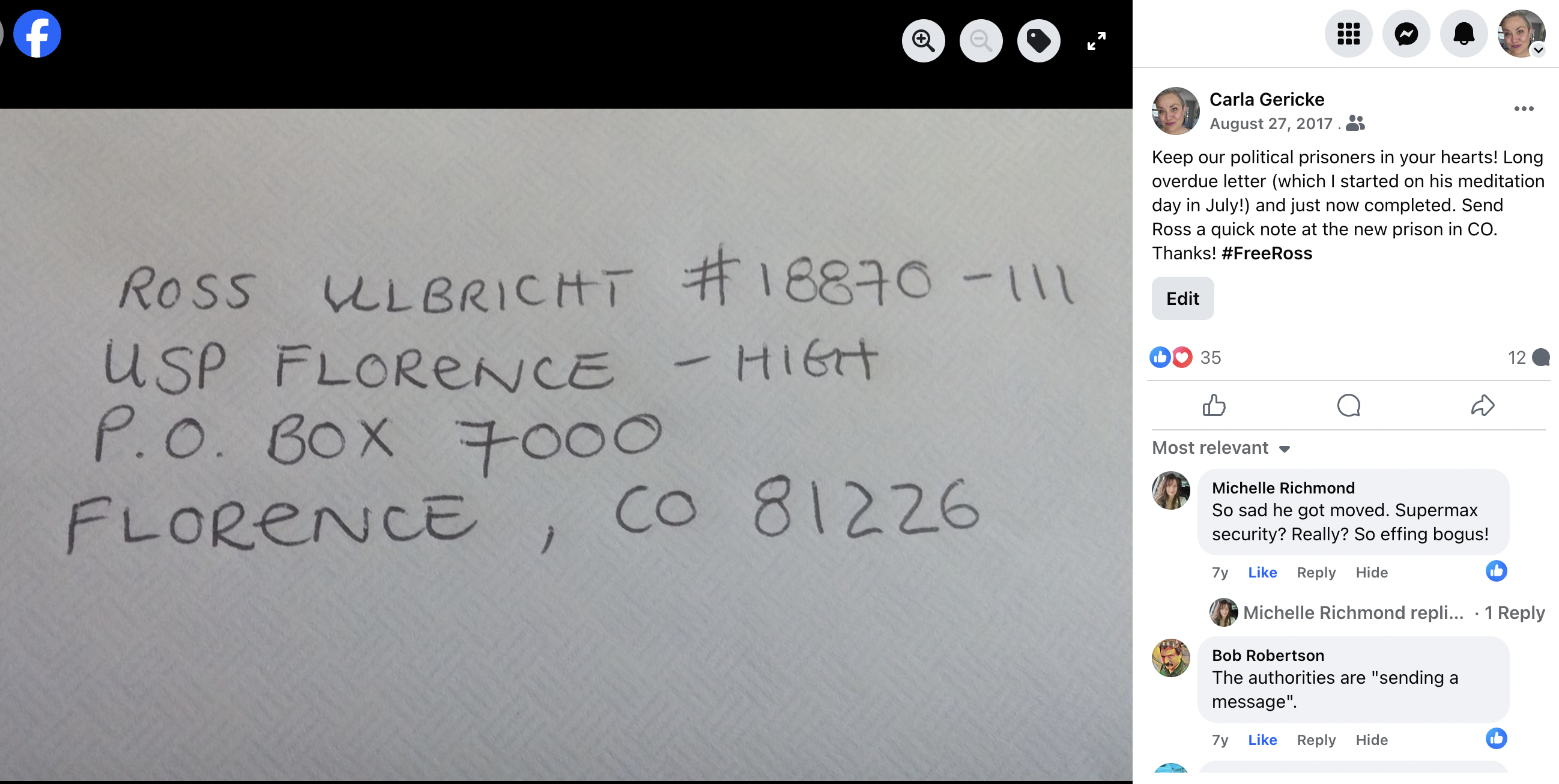
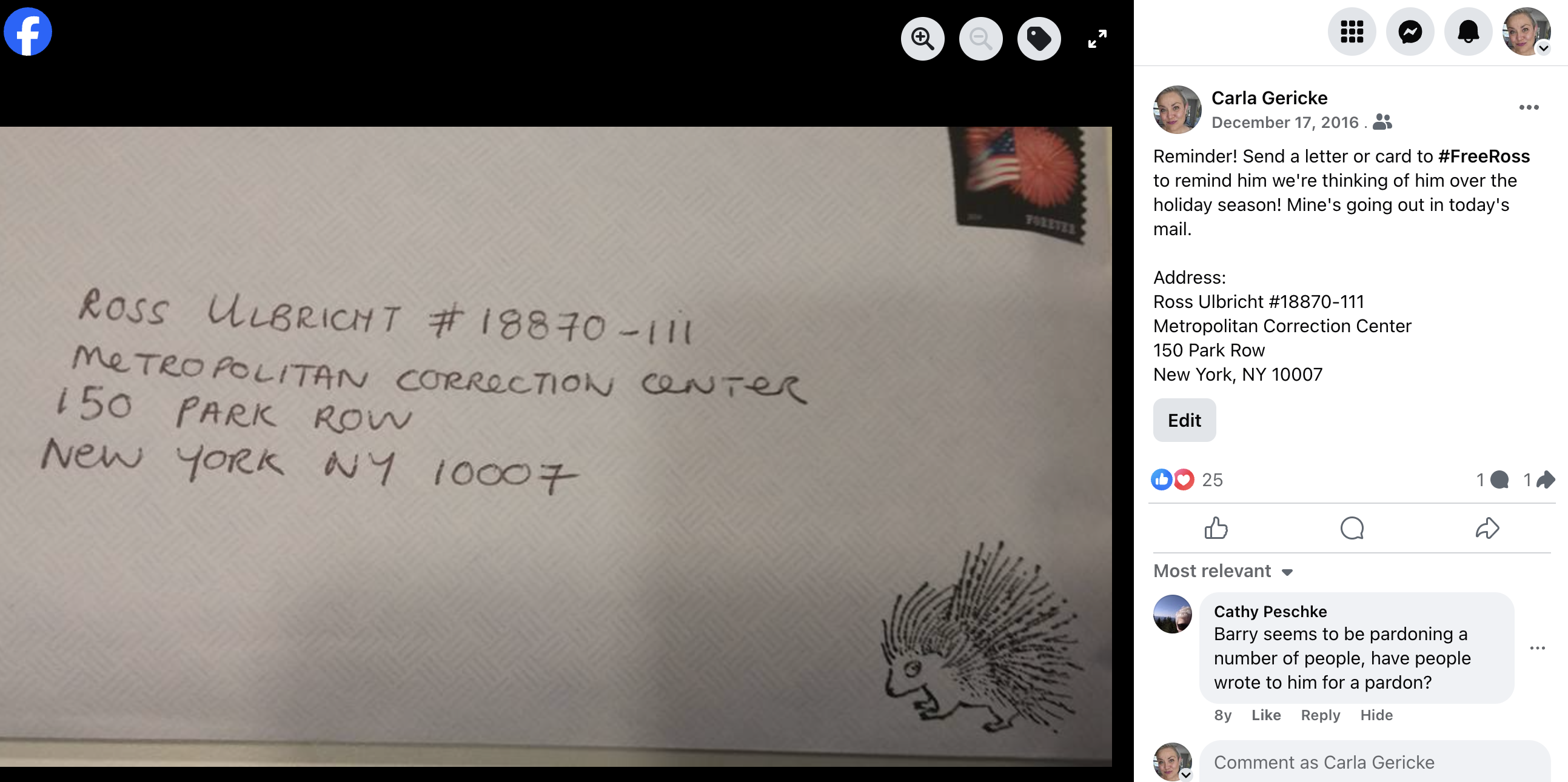

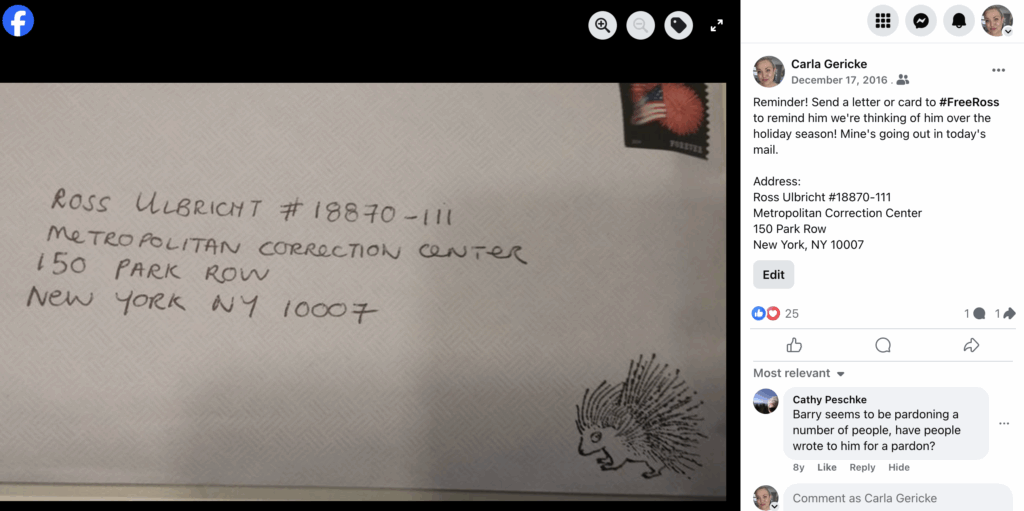
Read the whole article here: https://cointelegraph.com/news/bitcoin-heaven-on-earth-13th-annual-porcupine-freedom-festival-in-lancaster-new-hampshire
Forbes article from 2014: https://www.forbes.com/sites/kashmirhill/2014/06/12/the-free-state-project-a-libertarian-testing-ground-for-bitcoin-3d-printers-and-drones/
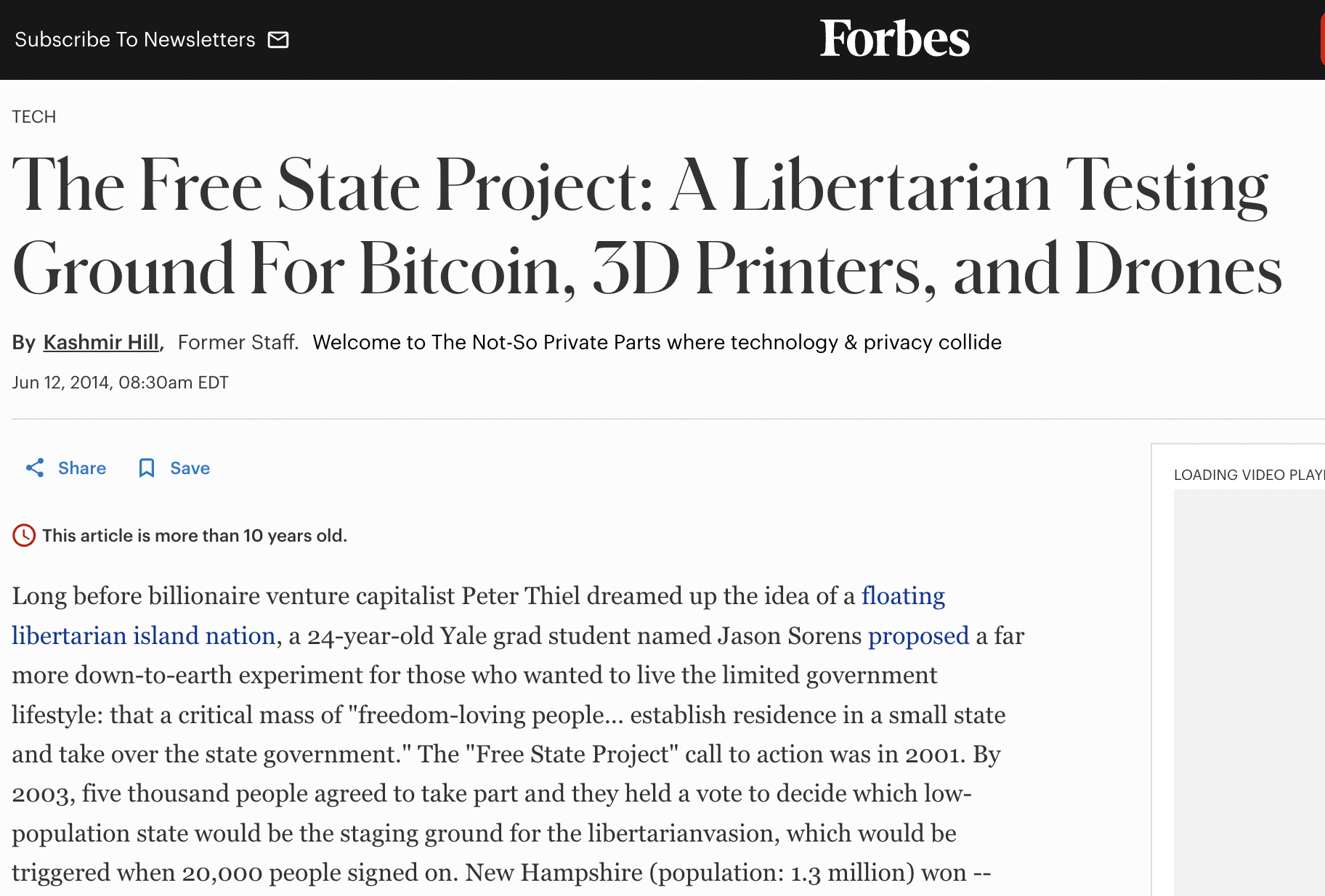
Many Free Staters are advocates of equalizing surveillance. Robin Hooders often film their parking-protection activity and especially their interactions with police. “We’re in a different age, a post-privacy reality. If you’re outside, you can be documented,” said one Robin Hooder at the Liberty Forum. “Cameras are like guns. It’s not good that the government has guns. But it’s good we have them as an equalizer.” Carla Gericke, president of the Free State Project, which is the organizing committee that helps get people to New Hampshire, recently won a lawsuit against the city of Weare, New Hampshire for charging her with wiretapping for filming police officers during a traffic stop. She was awarded $57,000 dollars.
~ Kashmir Hill in Forbes (2014)
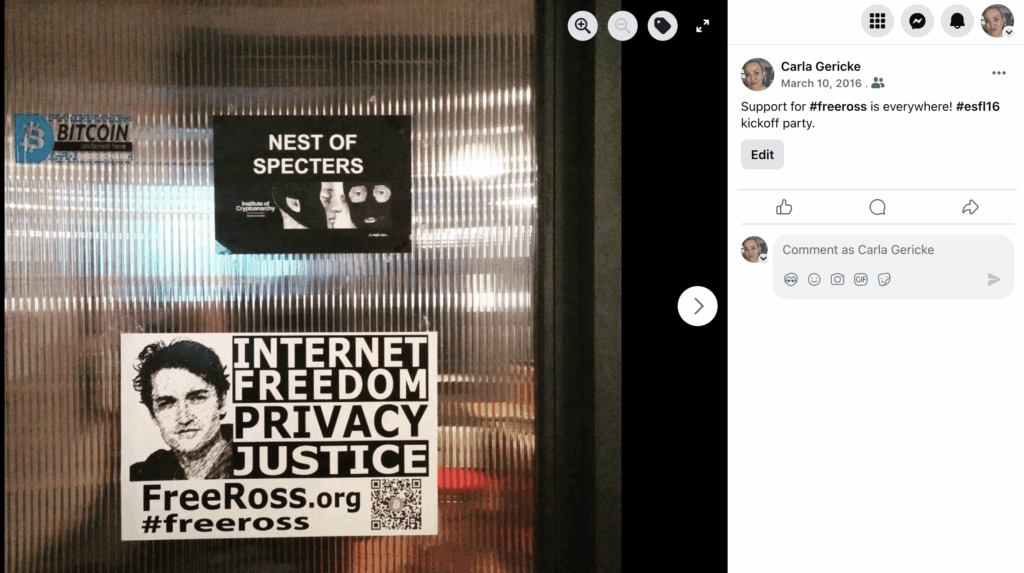
“We’re a pretty big movement, so we have the techies who know all and are early adopters of everything, and then people like me who are newbies,” says Gericke, a bubbly, black-haired woman who moved to New Hampshire in 2008. For all her talk of not being an early adopter, she bought her first Bitcoin when it was worth $6. (Most people didn’t hear of it until years when it was worth 100 times that.) Gericke says the Free State Project doesn’t try to push any particular technologies on the group, that tech adoption is organic. “I call my job herding cats,” she says. “It’s a challenge dealing with people who are individualists above and beyond anything else. For the most part, we have people working within the system – running for office, getting on school boards, working on budgets. Others are protesters. Others are free marketeers, starting businesses. It’s not an issue of saying one way is right and one way is wrong. There are many paths to liberty.”
~ From Forbes 2014 article
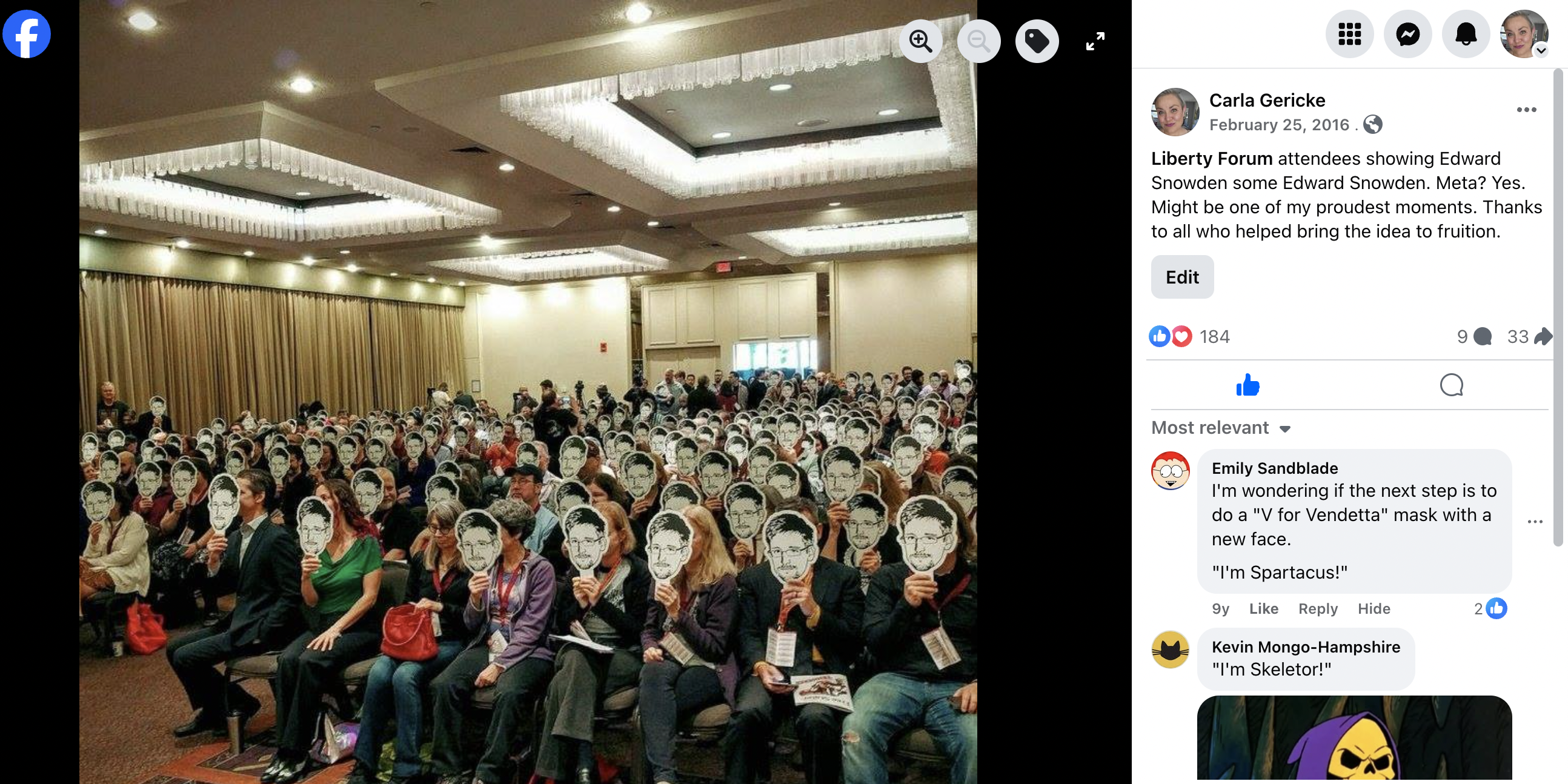
Watch the whole Snowden interview here: https://reason.com/video/2016/02/25/edward-snowden/
